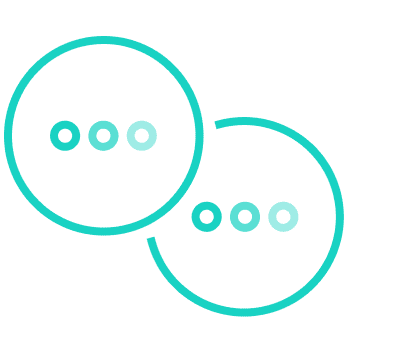As we stand at the threshold of Industry 5.0, a transformative era defined by the fusion of technology, sustainability, and human-centric values, the need for capable leaders who can navigate this complex landscape has never been greater.
The European Commission's definition of Industry 5.0 encapsulates this vision, emphasising the integration of digitalisation, sustainability, and human wellbeing into the fabric of industries.
As business leaders, it’s important to identify and prepare early talent to lead in this era, we understand what the commission’s perspective on Industry 5.0 is and the skills that will be essential for future leaders to navigate the era for long-term enterprise sustainability.
What is Industry 5.0?
Industry 5.0, as defined by the European Commission, represents the next phase of industrial evolution. It signifies a shift beyond Industry 4.0, where the focus was primarily on digitalisation and automation. In Industry 5.0, technology converges with sustainability principles and human values to create a harmonious and responsible ecosystem. In other words, it envisions a world where smart factories are not only efficient but also environmentally friendly, where automation coexists with the wellbeing of workers, and where innovation is driven by a sense of social responsibility.
At the heart of Industry 5.0 is the concept of human-centricity. The European Commission envisions an industrial landscape where technologies like artificial intelligence (AI), the Internet of Things (IoT), and blockchain are harnessed not solely for profit but also to improve the quality of life for individuals and the sustainability of our planet.
Skills needed to lead in Industry 5.0
The future of leadership is uncertain and complex, and it requires new skills and talents to navigate the challenges and opportunities that lie ahead. However, to ready early talent for future leadership capable of steering organisations in the Industry 5.0 landscape, a unique set of skills is required:
1. Digital proficiency:
Industry 5.0 is inherently digital. Leaders must have a deep understanding of emerging technologies and their potential applications. Proficiency in areas like AI, IoT, data analytics, and cyber security is essential to leverage technology for both efficiency and sustainability.
2. Sustainability acumen:
Sustainability is a cornerstone of Industry 5.0. Future leaders need to grasp the intricacies of sustainable practices, resource management, and the circular economy. They must be able to align business strategies with sustainability goals, minimising environmental impact.
3. Human-centric leadership:
In Industry 5.0, workers remain at the core of operations. Leaders must prioritise employee wellbeing, fostering a culture of inclusion, diversity, and work-life balance. Effective communication, empathy, and the ability to inspire and engage employees will be paramount.
4. Ethical decision-making:
As technology advances, ethical dilemmas become more complex. Future leaders must have a strong ethical compass and the ability to make sound decisions that consider the social and environmental implications of their actions.
5. Adaptability and innovation:
The pace of change in Industry 5.0 is rapid. Leaders must be adaptable and encourage a culture of innovation. They should be open to experimenting with new technologies and business models while promoting continuous learning.
6. Collaboration skills:
Collaboration is vital in an interconnected world. Leaders need to collaborate with diverse stakeholders, including government bodies, non-governmental organisations, and industry partners, to drive sustainability initiatives and shape industry standards.
7. Data literacy:
Data is the lifeblood of Industry 5.0. Leaders must be data literate, capable of extracting insights from data to inform strategic decisions. They should understand the ethical use of data and privacy considerations.
8. Resilience:
Industry 5.0 brings its own set of challenges. Leaders must be resilient in the face of disruptions, whether they be technological, environmental, or social. They should have contingency plans and strategies for risk management.
9. International understanding:
In a globally interconnected world, leaders must have a broad global perspective. Understanding international markets, regulations, and cultural nuances is crucial for sustainable growth.
10. Visionary thinking:
Industry 5.0 demands leaders who can envision a future where technology, sustainability, and human wellbeing are seamlessly integrated. They should have the ability to set ambitious goals and inspire their teams to work toward them.
How do we nurture early talent for leadership?
Identification of early talent begins with a nuanced understanding of the contemporary professional landscape. In Industry 5.0, early talent is not confined to traditional notions of leadership. These individuals possess a unique blend of digital proficiency, sustainability consciousness, and a profound commitment to ethical leadership.
To identify talent with the skills needed, assessment programmes must be recalibrated to align with the Industry 5.0 ethos. Beyond evaluating conventional skills, they should measure adaptability to technological shifts, an inclination toward sustainable practices, and a genuine passion for human-centric values. Mentorship, guided by these criteria, can serve as the compass guiding early talent towards leadership roles.
Education and training
The foundation of Industry 5.0 leadership lies in education and training. Early talent must be equipped with the knowledge and skills required to navigate a landscape defined by digitalisation and sustainability. Continuous learning is paramount. Educational programmes should expose talent to cutting-edge technologies, the intricacies of sustainability, and the ethical dilemmas posed by technology adoption. Leadership isn't just about making decisions; it's about making informed, responsible decisions.
A guiding hand
The symbiotic relationship between experienced leaders and early talent is a linchpin of Industry 5.0 leadership development. Through mentorship, seasoned leaders can offer insights that transcend traditional leadership models.
Experiential learning
Theoretical knowledge is crucial, but true leadership is honed through practical experience. Early talent must be exposed to projects that challenge them to integrate technology, sustainability, and collaborative problem-solving.
Experiential learning is the crucible in which adaptability is forged. It offers a first-hand understanding of the complexities and interdependencies that characterise Industry 5.0.
Practicing ethical leadership
In a world where technology's reach is boundless, ethical leadership isn't just a nice-to-have, it's a necessity. Early talent must be encouraged to explore ethical dilemmas and make decisions that resonate with both societal wellbeing and sustainability.
Ethical leadership isn't just about the right choice; it's about the thoughtful consideration of consequences and the willingness to take responsibility for those choices.
Embracing diversity
Industry 5.0 is inherently global. Understanding diverse perspectives is a cornerstone of effective leadership in this interconnected world.
Promoting diversity and inclusion within your organisation nurtures an environment where early talent can thrive and learn from individuals with varying cultural backgrounds and viewpoints. This exposure to diverse perspectives is invaluable in shaping well-rounded, global leaders.
Early talent as architects of Industry 5.0 leadership
As businesses navigate the terrain of Industry 5.0, early talent stands at the forefront, poised to shape the future of leadership. In this era defined by the fusion of technology, sustainability, and human-centric values, the skills and attributes required for leadership are manifold.
Identification is the first step in uncovering these talents, followed by education and training that equips them for the digital age. Mentorship and leadership development are the nurturing grounds where these talents can flourish, and experiential learning is the crucible that tempers them.
Ethical leadership, underpinned by a commitment to societal wellbeing and sustainability, guides the way. Embracing diversity prepares early talent to navigate the global landscape that is Industry 5.0.
In conclusion, early talent isn't just the workforce of tomorrow - they are the architects of leadership in Industry 5.0. By cultivating their skills and perspectives, we pave the way for a future where leadership transcends convention, where technology serves humanity, and where sustainability and ethics are not just principles but a way of life.
If you want to find out more about how to prepare for Industry 5.0, join our free webinar, 'Talent acquisition in the age of Industry 5.0: challenges and opportunities', on Thursday 5 October 2023, at 12pm.





